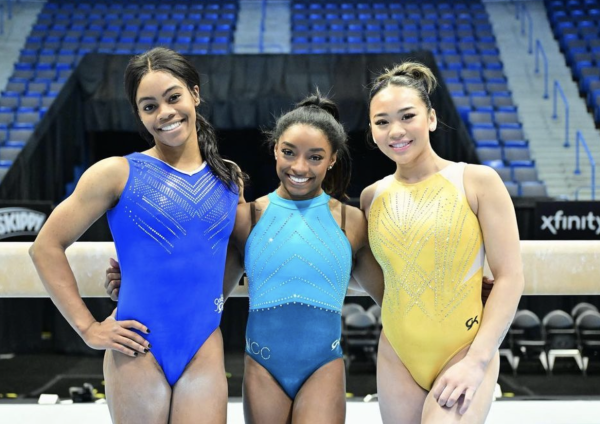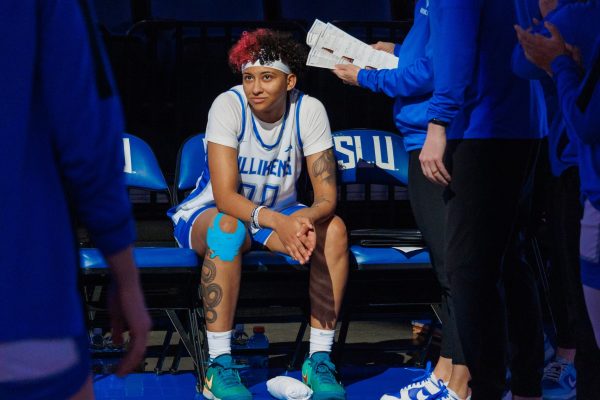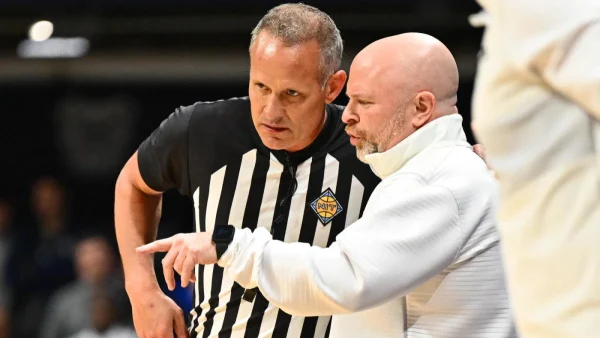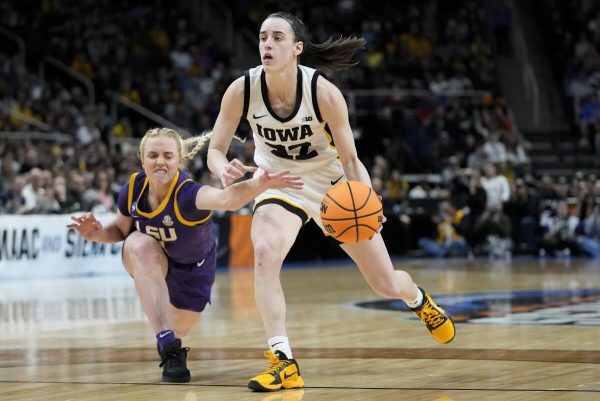It’s Lonely at The Top
Prior to Lia Thomas’ arrival in Atlanta for the NCAA championship, controversy around her name abounded. Thomas attends the University of Pennsylvania and took a fifth year to compete in swimming. She had made it to the championship for two races as the first seed in the 500 and 200-meter freestyle races. Her times posted at the championship were nearly record breaking. However, before all this began, there was debate over whether the fifth-year senior would get her fifth year.
Lia Thomas came to the University of Pennsylvania as a member of the men’s team. Thomas, now on the women’s team,had completed the necessary year-long hormone treatments needed in order to swim for UPenn’s women’s swim team. Her transition happened in accordance with all NCAA rules, careful not to break any for the extra controversy it might impose on any success she saw this season. On the men’s team, Thomas posted times that earned her runner-up status in 2019 at the Ivy League championships.
Though Thomas had qualified for two championship races, she stood atop the podium for only the 500-meter championship held on March 17. A career defining swim, she bested Virginia’s Emma Weyant who had claimed a silver medal at the Tokyo Olympics this past summer. The opportunity to swim against Weyant at an Olympic scale will likely never happen for Thomas. Due to the NCAA’s rules on transgender athletes competing, Thomas was able to follow protocol and remain a member of the team she holds in high regard. The Olympic rulings on transgender athletes make it nearly impossible for a trans athlete to compete with the current standards. It is why there has never been an openly trans Olympic champion.
Thomas’ name, however, has been surrounded in opinion. However, she is not the first transgender athlete to win a national championship. While Thomas is the first to win a championship in swimming, Franklin Pierce’s CeCe Telfer won a national title in track in 2019, the same year Thomas began her transition. Thomas is the first to win a Division I championship, given that Telfer’s championship came out of the Division II circuit.
Earlier this year, Thomas’ presence on the women’s team caused a stir. A letter from her teammates and alumni went public, citing the fact that in the men’s category she had been ranked number 462. As a woman, she was ranked first. Despite their objections, the Ivy League and NCAA confirmed that Thomas had followed protocol and therefore, there was not any action they could impose that would inhibit her from the competition.
Thomas’ opinion on it all has remained relatively unknown. To ESPN she explained that her interest was in swimming, not in other’s opinion on her participation. Thomas did not participate in media questioning after the championship, however, which is required per NCAA bylaws. Her failure to do such could result in punishment from the NCAA in some fashion.
On Friday, March 18, Thomas raced again in the 200-meter swim. She finished fifth, tying Florida’s Riley Gaines. Swimming powerhouse Stanford boasts the winner Taylor Ruck, who finished the race just under two seconds prior to Thomas and Gaines. Ironically, it is the same margin by which Thomas bested Weyant for her 500-meter title.
The conversation surrounding Thomas is one of deep emotions on both sides. From fear to excitement, disgust to praise, different words have been used to describe Thomas’ season. Both sides have made their points and discussion is surely not over. However, the NCAA’s rulings stand firm. There will be a place for trans women who successfully complete protocol in collegiate sports competition. Undoubtedly, others will follow in Thomas’ place. The NCAA will adopt USA Swimming’s standards in the next year, which will require trans athletes to have undergone at least three years of hormone treatment. That ruling would have disqualified Thomas, who would be only six months shy of that standard.
Some of Thomas’ competitors have been vocal regarding her ability to participate. Virginia Tech’s Reka Gyorgy penned a letter to the NCAA in opposition to Thomas’ participation. Gyorgy finished the season 17th overall, one slot shy of making the championship meet. However, not all of Thomas’ competitors have been fixated on her transition. Erica Sullivan of Texas placed third in the 500-meter race and has assured readers of her Newsweek essay that the most pressing issues in women’s sports do not involve transgender athletes.
Thomas made history on March 17. It could be years before another trans athlete has the same opportunity to do so. However, it seems clear through it all that Thomas’ concern has never been her gender or how others perceive her participation. She showed up to swim. And, on March 17, that was exactly what she did. Her five-year-long collegiate career has now ended, and she returned to Philadelphia with a gold medal around her neck to show for it.
Your donation will support the student journalists of Saint Louis University. Your contribution will help us cover our annual website hosting costs.











